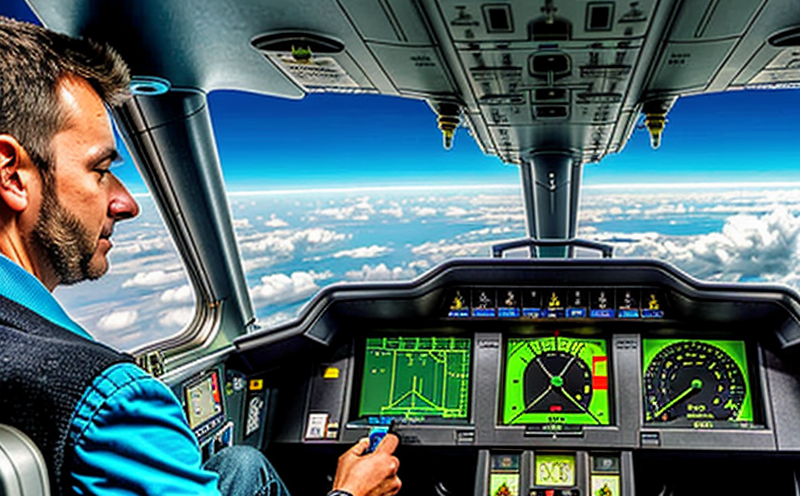Testing the effects of altitude on cabin pressure control systems in aircraft
The Crucial Role of Altitude Testing in Cabin Pressure Control Systems Ensuring Safety and Efficiency
As the aviation industry continues to grow and evolve, aircraft manufacturers and operators are under increasing pressure to meet stringent safety and regulatory requirements. One critical aspect of ensuring passenger safety is the cabin pressure control system (CPCS), which must function optimally across a wide range of altitudes and conditions. This is where Testing the effects of altitude on cabin pressure control systems in aircraft comes into play a specialized laboratory service provided by Eurolab that simulates real-world conditions to validate CPSC performance.
In this article, well delve into the importance of altitude testing for CPCS, highlighting the key benefits and advantages of using this laboratory service. Whether youre an aircraft manufacturer, operator, or maintenance provider, understanding the significance of altitude testing will help you make informed decisions about your operations.
What is Testing the Effects of Altitude on Cabin Pressure Control Systems in Aircraft?
Altitude testing for CPCS involves simulating various altitudes and conditions to assess how the system performs under different pressures. This laboratory service replicates real-world scenarios, allowing manufacturers and operators to validate their systems ability to maintain a safe cabin pressure while minimizing energy consumption.
Eurolabs altitude testing facility is equipped with advanced technology to simulate a wide range of altitudes, from sea level to 50,000 feet (15,240 meters). Our team of experts conducts rigorous testing procedures, ensuring that CPSCs meet or exceed regulatory requirements.
Why is Testing the Effects of Altitude on Cabin Pressure Control Systems in Aircraft Essential?
Altitude testing is crucial for several reasons
Safety Ensuring CPCS performance at high altitudes is critical to maintaining a safe cabin pressure and preventing hypoxia, which can lead to serious health issues or even fatalities.
Regulatory Compliance Regulatory agencies, such as the Federal Aviation Administration (FAA), require manufacturers and operators to demonstrate that their CPSCs meet strict safety standards. Altitude testing helps ensure compliance with these regulations.
Energy Efficiency Optimal CPCS performance also contributes to reduced energy consumption, which is essential for minimizing fuel costs and environmental impact.
Advantages of Using Eurolabs Altitude Testing Services
Here are the key benefits of using Eurolabs altitude testing services
Cost Savings Our laboratory service reduces the need for costly and time-consuming flight tests, saving you money on fuel, maintenance, and personnel.
Improved Safety By simulating real-world conditions, we help ensure that your CPSCs meet or exceed regulatory requirements, reducing the risk of accidents and injuries.
Faster Time-to-Market Our altitude testing services accelerate the certification process, enabling you to bring your aircraft to market more quickly and efficiently.
Reduced Risk By identifying potential issues before they become major problems, we help minimize the risk of costly repairs or even system failures.
Key Benefits
Here are some key benefits of using Eurolabs altitude testing services
Increased Efficiency Our laboratory service helps optimize CPSC performance, reducing energy consumption and minimizing fuel costs.
Improved Reliability By simulating real-world conditions, we help ensure that your CPSCs meet or exceed regulatory requirements, enhancing overall system reliability.
Enhanced Safety Altitude testing with Eurolab reduces the risk of accidents and injuries by validating CPSC performance at high altitudes.
Compliance with Regulatory Requirements Our laboratory service helps manufacturers and operators meet strict safety standards set by regulatory agencies.
Frequently Asked Questions (FAQs)
Here are some commonly asked questions about altitude testing for CPCS
Q What types of aircraft can be tested using Eurolabs altitude testing services?
A We test a wide range of aircraft, from small business jets to large commercial airliners.
Q How long does the altitude testing process typically take?
A The duration of our laboratory service varies depending on the specific requirements and conditions being simulated. However, most tests can be completed within 1-5 days.
Q What kind of data is collected during the testing process?
A Our team collects comprehensive data on CPSC performance, including pressure readings, flow rates, and energy consumption.
Q Can I witness the altitude testing procedure in person?
A Yes, we offer observation services for customers who wish to observe the testing procedure. Please contact us to arrange this.
Conclusion
Testing the effects of altitude on cabin pressure control systems in aircraft is a critical aspect of ensuring passenger safety and regulatory compliance. Eurolabs laboratory service provides a cost-effective, efficient, and safe way to validate CPSC performance across a wide range of altitudes and conditions. By partnering with us, you can accelerate your certification process, minimize the risk of accidents and injuries, and enhance overall system reliability.
Dont compromise on safety choose Eurolab for all your altitude testing needs.




